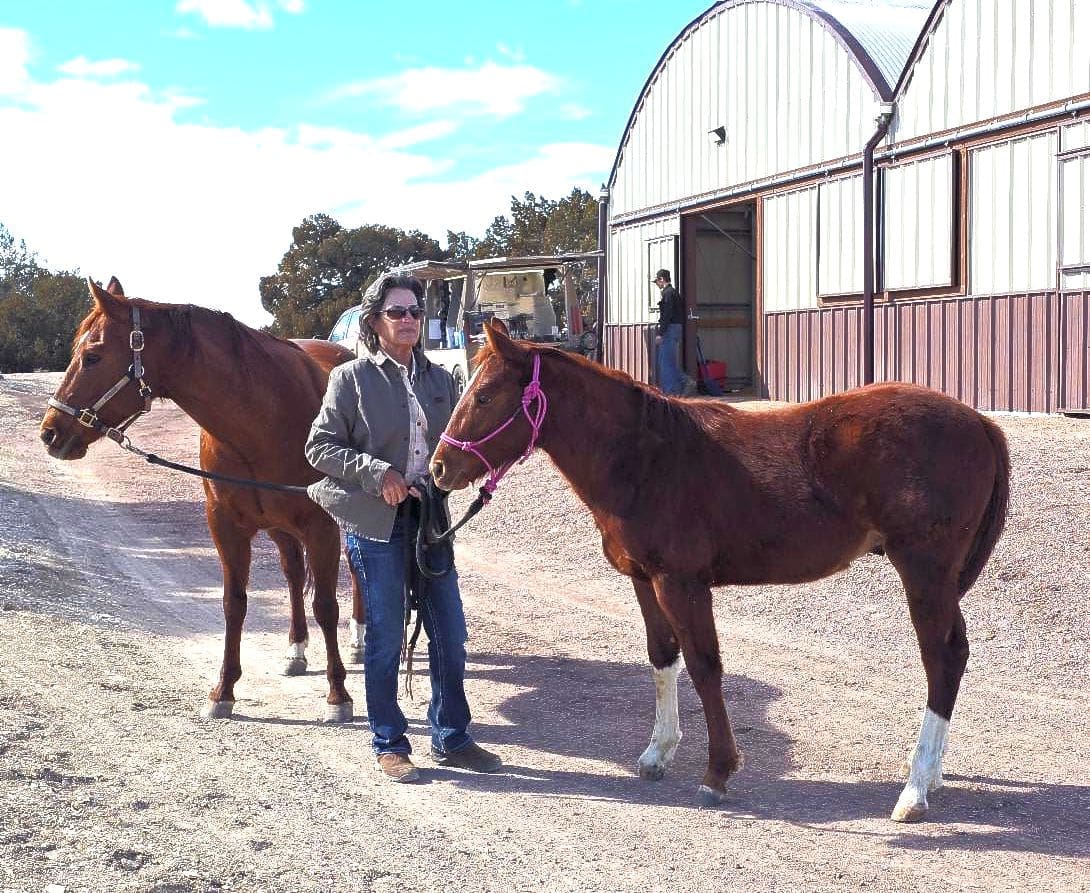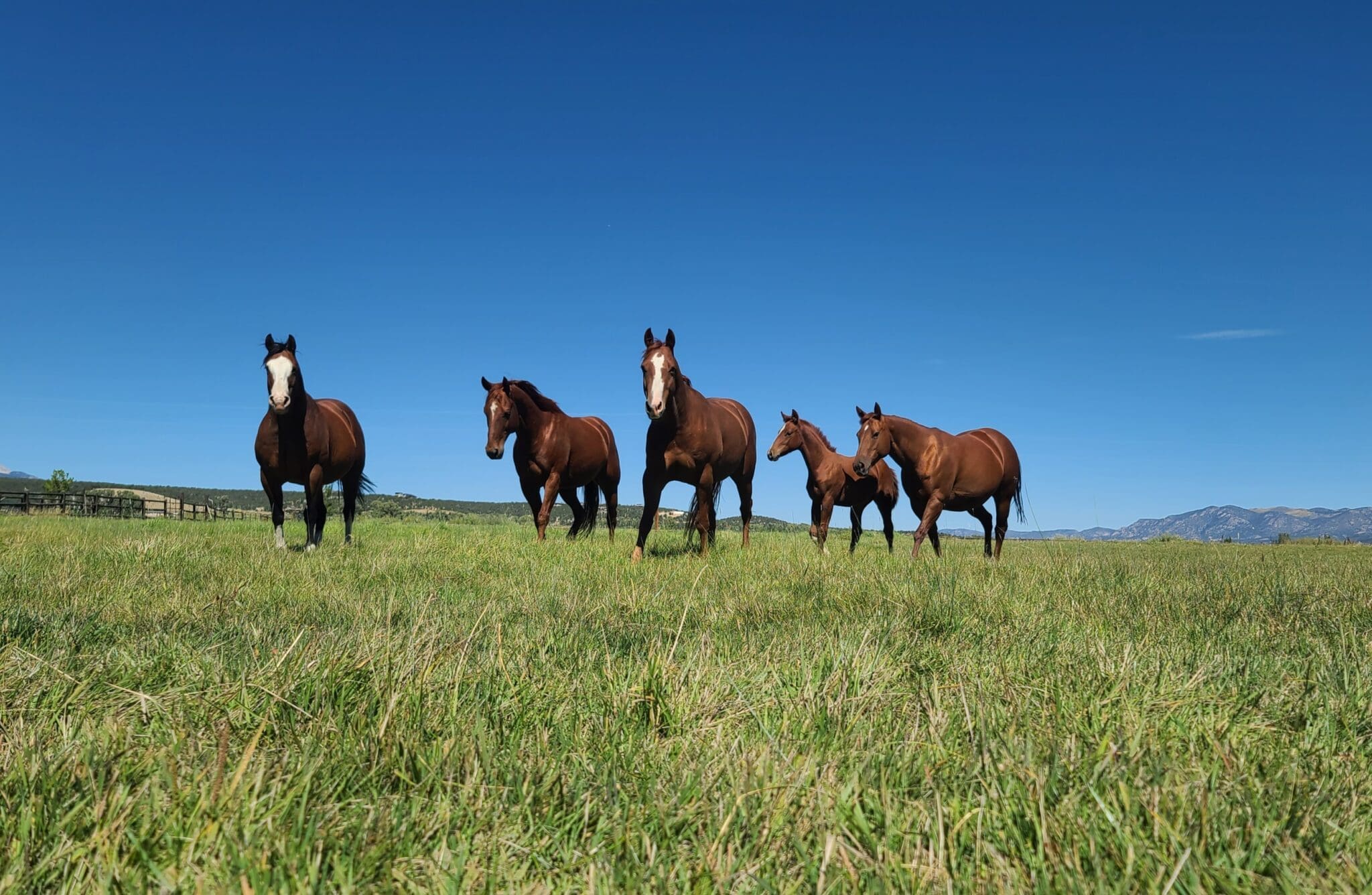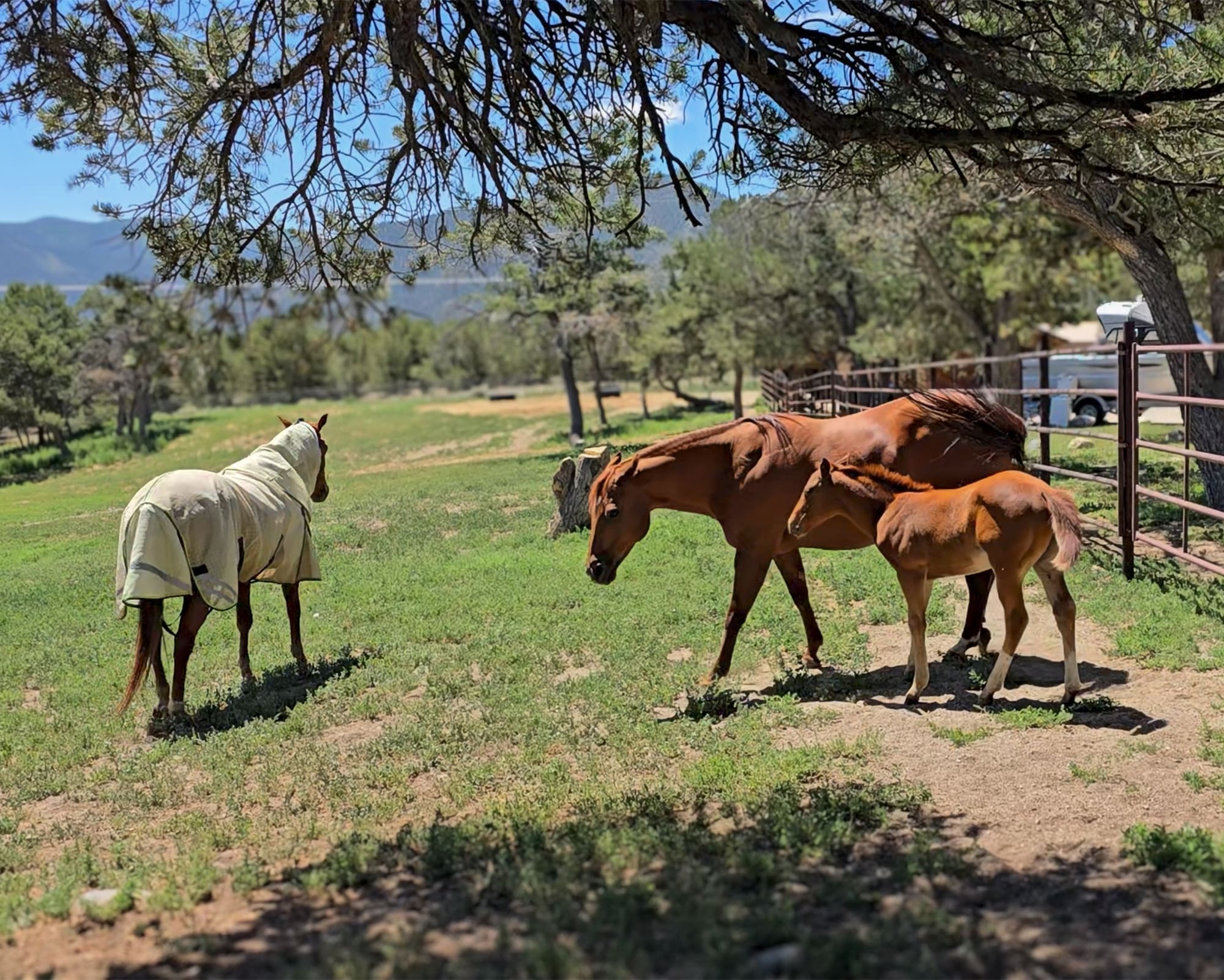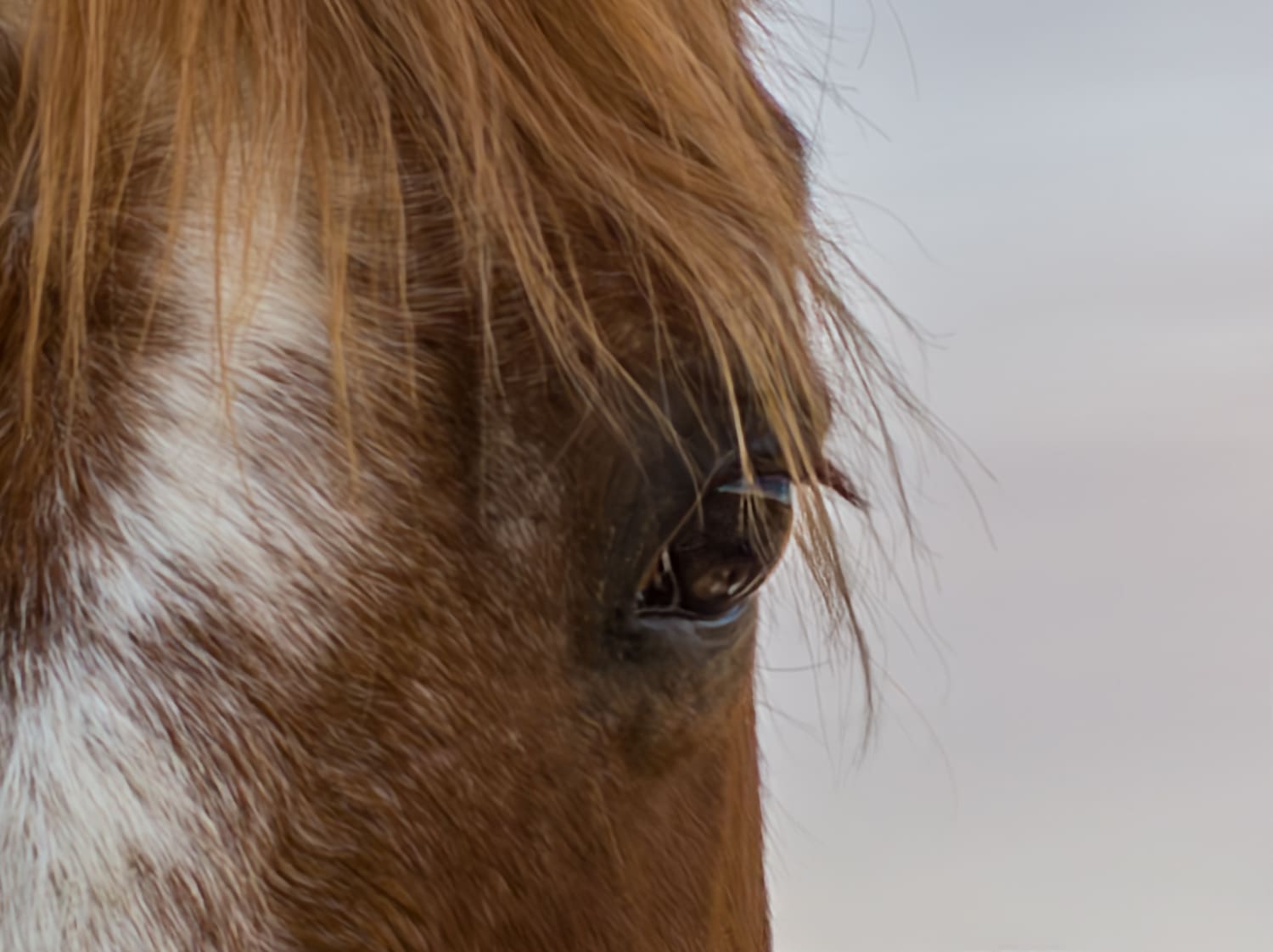A strong work ethic ensures an individual’s success—for both horses and humans. Whether you are bussing dishes or doing brain surgery, a good work ethic will make a difference in the rewards you reap and how far you will go in your career. For horses, it is no different.
Horses do better when they are gainfully employed and regularly worked—useful, fit, skilled and purposeful; healthy and gratified, they would even show up for work on their day off if you asked. Like humans, when horses are instilled with a strong work ethic from an early age, they strive to work hard and reap the rewards of a purposeful career and their individual talent is developed to its fullest potential.
I’ve never known anyone that was inherently lazy to be successful with horses—it’s a lot of hard work! If you have horses at home or have been in charge of a stable full of four-legged friends, you know that working with horses is a dusk to dawn, seven day a week job. Holidays don’t matter; horses still have to be fed.
The Human Drive
I’ve known the importance of a strong work ethic since I first started my career–over 30 years ago. The importance is magnified when you work for yourself. Working with horses is the only job I know of where you normally work six days a week–but you only get a day off if you pay someone to cover for you.
I first started into business as a young, independent trainer, starting with an initial capital investment of zero. I opened my doors with a dozen or so horses in my barn. Some were boarded, some in for full training, but they all had big mouths to feed. It was during that time that I worked the hardest—but also learned so much.
I was going through a ton of hay per week but I couldn’t afford to buy in bulk or get it delivered. So every Saturday I would coax a friend to come with me to help stack 30 bales precariously on my over-loaded truck, drive it back to the barn and unload it. I went through a lot of friends.
It was a year before I could afford to start buying hay by the semi-load and from that point forward, I vowed to always get my hay delivered and stacked, no matter how much more it cost– a promise to myself that I have kept. The horse business entails a lot of hard work, dedication and persistence but the rewards are great.
I am one of four siblings and all of us are blessed with strong work ethics. I’ve long known that a huge part of my success being self-employed, has to do with my work ethic and I’ve often wondered what is it about our upbringing or genetics that has led us all to this trait? We were raised on a horse farm where we knew that lives depended on the chores we were assigned to do. We were taught from an early age that there was time for play, but that taking care of the animals came first.
Within the chores we had to do, we knew there were consequences for not doing the job correctly. If a gate was left open, horses were in danger of getting loose (and they did). If a gate that should have been open was closed, a horse may not have access to water (thankfully no one died).
We saw our own parents have dreams and business goals that they regularly tended and saw through to fruition. There’s no one parenting strategy I can point out, but I know a combination of teaching showed me that there was a benefit to my hard work. My parents taught us that we should love what we do and enjoy life to its fullest every day and that if we wanted something, no matter how far-fetched, it was within our power to make it happen, even though it may take a while. And that fairness and a sense of objectivity are very important in all matters.
As parents, we think about these things—how do you help a child learn a good work ethic in today’s culture of instant gratification and risk-averse attitudes? I believe teaching young humans about horses is one step we can take to keep the term “strong work ethic” in the vernacular. I am a huge fan of the “Time to Ride” initiative, http://timetoride.com/ designed to help introduce horses to the younger generations. Not only is it critical for the growth of our industry, but it is important to our youth because of the life skills that working with horses brings.
Horses and Work Ethic
While we as humans need to be dedicated to our horses and have a strong work ethic for our riding and horse goals to flourish, it’s also important to think of the horse’s work ethic. While horses definitely need turnout time to “just be horses,” I have found that most horses do better when they have regular and purposeful work.
In my long and varied career training horses, I have found that it is best to teach a work ethic when a horse is young, just like teaching a toddler to pick up his toys. A mature horse that has never been worked is a challenge to train– like training a 30 year old man, who had never had a job, cooked a meal or picked up his dirty clothes off the floor in his life to be a good husband. Sure, it’s possible, but brace yourself because you may be in for some resistance.
Learning a good work ethic starts with learning good manners and how to follow the rules—that you will be rewarded for compliance and that noncompliance will not be tolerated. This is kindergarten for horses. Well before a horse is started under-saddle, he should learn to respect authority, be careful not to infringe on his handler’s space and to look for the cues that tell him what he should do. As a yearling and 2 year old, he’ll also learn to stand and wait patiently while tied, knowing full-well that he could be there all day, so best make yourself comfortable. Patience and stick-to-it-ness is a virtue.
As the young horse progresses toward being ridden, at some point he must learn the cold, hard facts about working for a living—that sometimes he has to work when he doesn’t feel like it, to do what he’s told and to meet certain expectations that his job requires. But that he will always be rewarded for his efforts.
This is easily taught to the horse while doing ground work and the horse learns to go where you direct him without argument, at the speed you dictate, until you tell him to stop. I can teach this on the lead line in one session by setting rules and boundaries for the horse—you cannot get in front of me, you cannot crowd me with your shoulder, and you cannot drag behind me like an anchor. That there are rules I expect to be followed, ramifications if you don’t and comfort when you do. That it is your responsibility to know and follow the rules and I won’t remind you or count to three. Oddly enough, horses learn these things quickly and they take great comfort in knowing the rules.
When we advance to the round pen or circling on a long line, I’ll teach the horse that I expect a ‘yes mam’ response when I ask him to step out and that he should keep going until I ask him to stop. This is a critical stage in training a work ethic, both on the ground and in the saddle—a horse must learn that once I tell him to do something (like trot at this speed), he must continue on his own (without prodding, pleading or pedaling) until I give him the signal to stop. I run across horses every day in my clinics that have never learned this lesson (or actually been taught the opposite) and stop or take off whenever they want.
By nature, horses are an incredibly impulsive species. Take the flight response, for example—clearly a react-first, think-later behavior. Imagine if horses could do whatever they wanted, whenever they wanted while you were riding them. Lazy horses would go nowhere and do nothing. Energetic horses would go faster and faster. Nervous horses would spin and bolt whenever their fancy struck them. A cranky horse might kick or bite you just for getting in his way or break in two bucking at the slightest provocation.
Horses and Humans
No matter what their default behavior type, all horses can learn to work and it is critical to their success—be it a world champion or the best trail horse ever. Learning a good work ethic and that there are rules to follow, ramifications if we don’t and certain expectations of our behavior, is a critical stage of training in horses and humans both—best taught at an early age! It’s also about learning the great satisfaction and reward that comes with working hard and a job well done. Even if I have to stack a ton of hay again someday, I know I’d be satisfied when I was finished at the tightness of the stack and the good workout I got!



